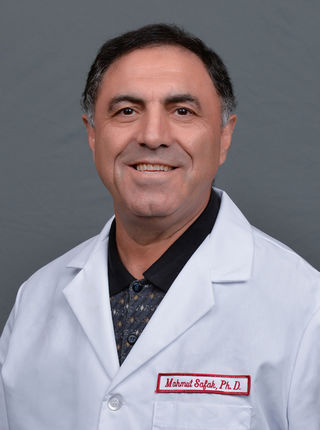Mahmut Safak, PhD
Associate Professor, Microbiology, Immunology and Inflammation
Associate Professor, Center for Neurovirology and Gene Editing
Associate Professor, Cardiovascular Sciences

- Contact Information
-
- About Me
-
Research Interests
To understand the molecular mechanisms involved in JC virus (JCV) gene transcription and replication at the molecular level in order to develop molecular therapeutics that effectively inhibit viral replication in the central nervous system and thereby JCV-caused disease, progressive multifocal encephalopathy (PML).
Research Summary
Our laboratory’s research interest revolves around understanding transcriptional and replicational regulation of JC virus (JCV) by viral and cellular factors. JCV, a human polyomavirus, asymptomatically infects most individuals early in life and persists in the body. In immunocompromised individuals, however, JCV may lytically infect oligodentrocytes in the central nervous system and cause a white matter disease known as progressive multifocal leukoencephalopathy. Approximately 5-8% of AIDS patients now succumb to this disease. Numerous studies have shown that JCV is an oncogenic agent and has the ability to induce a wide variety of tumors in rodents and in non-human primates. Recent reports indicate the possible association of JCV with certain human tumors. Our group particularly interested in functional analysis of two JCV regulatory proteins, agnoprotein and small t antigen (t-Ag) in JCV biology.
Agnoprotein is a small regulatory protein encoded by the leader sequences of the JCV late genome. Recent investigation of its function through mutational analysis showed that not only agnoprotein itself but its coding sequences plays critical roles in JCV regulation. In particular, deletion analysis of the agno gene resulted in complete abrogation of the JCV activity suggesting that its coding region may contain some regulatory cis-acting DNA elements to which unknown nuclear protein complexes bind and regulate the JCV life cycle. In fact, nuclease protection analysis of the entire coding region of this protein revealed three protected regions and further analysis of the protein complexes that interact with one of the protected regions by Mass Spectroscopy identified several cellular factors, some of which were shown to be involved in DNA helicase, replication, repair and gene regulation. Thus, we are interested in further analysis of the agnoprotein, its coding region and the factors that interact with this region.
Small t-Ag is produced due to alternative splicing of JCV early transcripts. We are also interested in functional analysis of this protein in JCV regulation and cell transformation using different experimental model systems. The functional activity of this protein in both areas is completely unknown. However, our recent findings indicate that small t-Ag has the ability to promote cell cycle progression perhaps through the activation of cell growth and proliferation pathways. Our goal is then to investigate the role of this protein in JCV regulation as well as to delineate the molecular pathways involved in small t-Ag-induced cell proliferation.
- Education, Training & Credentials
-
Educational Background
- Postdoctoral Fellowship, Drexel (MCP Hahnemann) University School of Medicine, Philadelphia, PA, 2000
- PhD, Biochemistry and Molecular Pharmacology, Thomas Jefferson University, Philadelphia, PA, 1998
- Publications
-
Digital Bibliography
